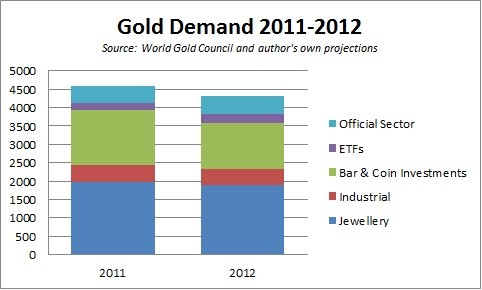ETFs unfairly blamed in recent market drama
Post on: 4 Май, 2015 No Comment

Story Highlights
- Market volatility puts spotlight on ETFs Big moves in emerging markets and municipal bonds spark criticism Misunderstanding behind much of the concern
The $1.5 trillion U.S. ETF market has faced close scrutiny the past week after a jarring sell-off in emerging markets and U.S. municipal bonds.
Some critics have zeroed in on discounts to fair value in emerging market ETFs, but those concerns are simply off-base. Every ETF calculates an estimate of the net asset value (NAV) of its underlying portfolio throughout the day.
The main issue with funds that track emerging market securities is that most of the underlying holdings do not trade during our market day, says Morningstar senior fund analyst Patricia Oey. So the ETF is essentially a price discovery vehicle for that asset class.
In other words, it’s meaningless to compare the share price of any international equity ETF with a stale NAV based on stock prices that are several hours old. In last Thursday’s sell-off, emerging market ETFs changed hands at big discounts to NAV in the U.S. afternoon session on anticipation the underlying stocks would trade lower the next day when foreign markets opened.
CREATIONS AND REDEMPTIONS
A lot of the recent confusion surrounding ETFs is probably due to the admittedly complex inner workings of the exchange-listed investment products.
Investors trade ETF shares with each other on exchanges — this is known as the secondary market.
Furthermore, large blocks of ETF shares can be created and redeemed through transactions between the fund providers and large financial institutions known as authorized participants, or APs. This intricate process contributes to the tax efficiency of ETFs and also keeps the price of a share in line with NAV through arbitrage.
Last week, authorized participant Citigroup temporarily stopped accepting ETF redemptions after it hit internal risk limits.
From an end-investor perspective, this means nothing. It does not affect the pricing of the ETF in the secondary market, says David Abner, head of capital markets at ETF provider WisdomTree Investments.
There are multiple APs for each ETF who will pick up the slack, he adds.
MUNI BONDS
Recent focus also has been on how muni bond ETFs were affected the past week when the sector was flooded by a wave of selling. Indeed, there was a rush for the exits in the muni market on rising rate concerns and renewed fears over the financial challenges faced by states and major cities.
Some of the category’s largest ETFs such as iShares National AMT-Free Muni Bond (ticker symbol: MUB) and Market Vectors High Yield Municipal Index (HYD) traded at discounts to NAV.
Those discounts faded away this week as the muni bond market rallied back.
Problems occur in the ETF arbitrage mechanism if liquidity in a bond market begins to deteriorate. The reduced liquidity creates a larger risk for APs who are tasked with keeping the ETF market flowing, says Rick Ferri, head of Portfolio Solutions, an advisory firm that uses ETFs. This, in turn, increases the spread between the ETF price and NAV. ETF prices trend back toward NAV as the markets stabilize and liquidity comes back.
But, again, there are problems with comparing the share price of a muni bond ETF with NAV, which is ultimately a modeled estimate of fair value. Muni bonds are a relatively illiquid asset class and it’s difficult to determine the value of individual issues when they aren’t trading, particularly during sell-offs.
In these situations, the share price of the ETF can actually be a better indicator of fair value than the NAV. ETF market makers are continually trying to estimate the market value of the underlying basket of muni bonds, so they can hedge their risk and determine appropriate bid-ask spreads. Sometimes in volatile markets, the NAV model can’t keep up.
The fact that ETFs offer liquid access and the ability to price in new information on a real-time basis, even when the underlying bonds are trading thinly or not at all, is one of the reasons we’re seeing such increased adoption of fixed income ETFs, says Dodd Kittsley, head of global exchange traded product market trends research for BlackRock, which manages the iShares funds.
The best price on anything in the market is the market trade, says Jim Ross, global head of State Street Global Advisors’ ETF business.
Finally, last week reports surfaced that State Street ceased offering cash redemptions to APs for its muni bond ETFs. However, in-kind redemptions with the underlying bonds continued, and State Street in any case isn’t obligated to deliver cash to APs for redemptions. The firm’s first obligation is to the ETF shareholders.
All this means is that APs have to go into the markets and trade the underlying assets, or in the case of a redemption, that the AP will receive the actual underlying assets and will have to sell them in the markets instead of just receiving cash, says WisdomTree’s Abner. This has no impact on the normal functioning of the ETF or of the arbitrage mechanism that keeps an ETF trading at close to its fair value throughout the day.














